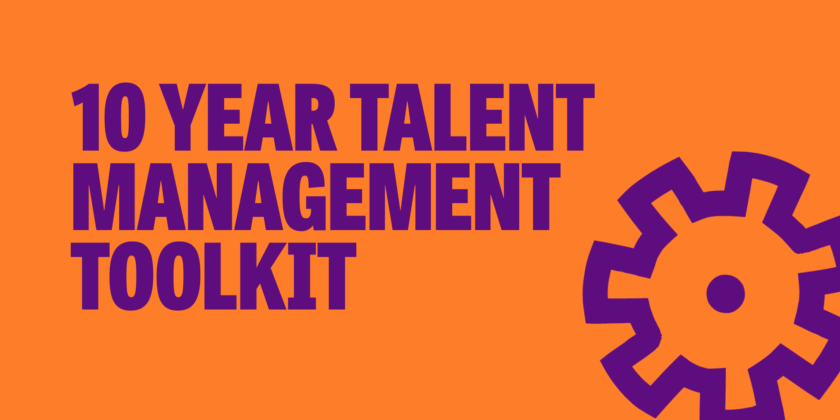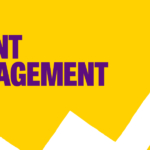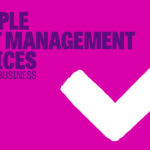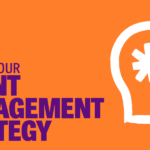In an era where the only constant is change, HR leaders face an unprecedented challenge: building talent strategies that not only address today’s needs but remain relevant and effective over the next decade. The traditional playbook of recruitment, retention and development is evolving rapidly, driven by technological advancement, shifting workforce expectations, and fundamental changes in how we define work itself.
Welcome to your 10-Year Talent Management Toolkit – a strategic framework designed to help you get, keep, and grow brilliant people in an increasingly complex landscape.
The Talent Landscape: What’s Changing
Before diving into the toolkit, it’s crucial to understand the seismic shifts reshaping talent management. We’re witnessing the convergence of multiple forces: artificial intelligence transforming job roles, remote and hybrid work becoming permanent fixtures, generational shifts in workplace values, and an increasingly skills-based economy where adaptability trumps tenure.
The war for talent isn’t just about finding people anymore – it’s about creating environments where exceptional individuals choose to stay, grow, and contribute their best work. This requires a fundamental reimagining of how we approach the entire talent lifecycle.
Getting Brilliant People: The Future of Talent Acquisition
AI-Enhanced Talent Intelligence
The next decade will see talent acquisition evolve from reactive hiring to predictive talent intelligence. Forward-thinking organisations are already using AI to identify talent patterns, predict future skill needs, and proactively build talent pipelines before positions become vacant.
Your toolkit should include sophisticated analytics that help you understand not just who you need to hire, but when, why, and from where. This means moving beyond traditional job descriptions to competency frameworks that can adapt as roles evolve.
Skills-First Recruitment
The degree requirement is dying, and skills-based hiring is taking its place. Over the next ten years, successful organisations will master the art of identifying transferable skills and growth potential, rather than relying on traditional credentials.
This shift requires new assessment methodologies, partnerships with alternative education providers, and a willingness to look beyond conventional talent pools. Consider developing relationships with coding bootcamps, professional certification programmes, and apprenticeship schemes that produce job-ready talent.
At Let’s Talk Talent, we help organisations develop these future-focused recruitment strategies and build the assessment frameworks needed for skills-based hiring.
Employer Brand as Talent Magnet
In a candidate-driven market, your employer brand becomes your most powerful recruitment tool. But tomorrow’s employer branding goes beyond perks and benefits – it’s about purpose, values alignment, and authentic storytelling.
The most successful organisations will be those that can articulate not just what they do, but why they exist and how each role contributes to something meaningful. This requires authentic leadership voices, transparent communication about challenges and opportunities, and a genuine commitment to the values you espouse.
How Let’s Talk Talent Can Help You Get Brilliant People
- Talent Strategy Consulting – Designing recruitment approaches that shift from reactive hiring to predictive workforce planning.
- Bootcamps & Workshops – Equipping hiring managers with the ability to assess for competencies and transferable skills, not just credentials.
- Employer Brand Development – Helping leadership teams articulate their purpose and culture, so candidates understand the why behind the role.
Keeping Brilliant People: Retention in the Modern Era
Personalised Career Experiences
The one-size-fits-all career path is obsolete. Today’s professionals expect personalised development journeys that align with their individual goals, life circumstances, and learning preferences.
Your retention strategy must include flexible career frameworks that allow for lateral movement, project-based assignments, and non-linear progression. This might mean creating specialist tracks alongside management paths, or offering sabbatical programmes for employees to pursue passion projects or additional education.
Psychological Safety and Belonging
Research consistently shows that psychological safety – the belief that one can speak up, make mistakes and be authentic without fear of negative consequences – is fundamental to retention and performance. Building this requires intentional effort at every level of the organisation.
You should iInvest in training managers to create inclusive environments, establish clear feedback mechanisms, and celebrate both successes and intelligent failures. The organisations that master psychological safety will have a significant advantage in retaining top talent.
Our leadership development programmes focus specifically on building these capabilities in your management teams.
Work-Life Integration
The pandemic permanently altered expectations around work-life balance. Now the future of retention lies not in work-life balance – a concept that implies constant tension – but in work-life integration that allows talented individuals to bring their whole selves to work.
This means flexible arrangements that go beyond remote work to include compressed work weeks, job sharing and outcome-based performance metrics, rather than time-based ones. It also means supporting employees through major life transitions with targeted benefits and policies.
How Let’s Talk Talent Can Help You Keep Brilliant People
- Personalised Career Journey Design – Building flexible career and competency frameworks that allow for individual growth, lateral movement and non-linear progression.
- Psychological Safety Workshops – Equipping managers to create inclusive environments where employees feel safe to speak up, innovate, and contribute authentically.
- Leadership Development for Retention – Specialising in coaching and assessment programs that empower leaders to foster psychological safety, provide personalised experiences, and support flexible work arrangements.
Growing Brilliant People: Development for the Future
Continuous Learning Architecture
The half-life of skills is shrinking rapidly. What takes four years to learn in university may be obsolete in two. This reality demands a shift from episodic training to continuous learning architectures that embed development into daily work.
Your toolkit should include micro-learning platforms, AI-powered skill gap analysis, and learning paths that adapt in real-time to industry changes. Partner with external learning providers, but also invest in internal knowledge sharing systems that capture and disseminate institutional wisdom.
Leadership Development at Scale
The leadership challenges of the next decade will require new competencies: digital fluency, cultural intelligence, adaptive thinking and the ability to lead through ambiguity. Traditional leadership development programmes won’t suffice.
Consider implementing reverse mentoring programmes where younger employees teach digital skills to senior leaders, cross-cultural assignment programmes that build global perspective, and scenario-based leadership simulations that prepare leaders for unprecedented challenges.
Let’s Talk Talent specialises in coaching and assessments that prepare leaders for these future challenges.
Internal Mobility as Growth Engine
The most successful organisations will become internal talent marketplaces where employees can easily discover and pursue new opportunities within the company. This requires transparent communication about available roles, clear pathways for skill development, and managers who are rewarded for developing talent, even when it means losing team members to other departments.
How Let’s Talk Talent Can Help You Grow Brilliant People
- Continuous Learning Architecture Design – Implementing micro-learning solutions, AI-powered skill gap analysis and adaptive learning paths.
- Leadership Development at Scale – Delivering coaching and assessment programs that build future-ready competencies, like digital fluency and adaptive thinking.
- Internal Mobility & Talent Marketplace Creation – Developing succession planning enables seamless internal talent movement and fluidity within your organisation.
Technology Enablers: Your Digital Toolkit
People Analytics and Predictive Insights
Data-driven talent management is no longer optional. Your toolkit must include robust people analytics that can predict flight risk, identify high-potential employees, and optimise team composition for maximum performance.
This includes sentiment analysis tools that monitor employee engagement in real-time, network analysis that identifies informal influencers and knowledge brokers, and predictive models that help you anticipate future talent needs.
AI-Powered Personalisation
Artificial intelligence will increasingly enable mass personalisation of the employee experience. From customised learning recommendations to personalised career guidance, AI can help create individual experiences at scale.
However, the key is using AI to enhance human connection, not replace it. The most effective implementations will be those that free up managers and HR professionals to focus on high-value, relationship-building activities.
Preparing for the Unknown: Building Adaptive Capacity
Scenario Planning for Talent
The next decade will likely bring changes we can’t fully anticipate. Building adaptive capacity into your talent strategy means developing scenario planning capabilities that help you prepare for different possible futures.
Consider conducting regular talent stress tests that explore how your organisation would respond to various scenarios: a major competitor entering your market, a significant technological disruption, or another global crisis affecting how work gets done.
Culture as Competitive Advantage
In a world where technology and processes can be quickly replicated, culture becomes the ultimate differentiator. Organisations with strong, adaptive cultures will be better positioned to attract, retain, and develop talent regardless of external changes.
This means investing in culture measurement tools, regular culture audits, and leadership development that emphasises culture stewardship. Your culture should be strong enough to provide stability during change, and flexible enough to evolve with new realities.
Our organisational development consultancy helps companies build these adaptive, resilient cultures that become genuine competitive advantages.
Measuring Success: KPIs for the Future
Traditional metrics like turnover rate and time-to-fill remain important, but your expanded toolkit requires new measurements:
- Skills velocity: How quickly employees acquire new competencies.
- Internal mobility rate: Percentage of roles filled by internal candidates.
- Psychological safety index: Measured through regular pulse surveys.
- Learning engagement: Time spent in development activities and application of new skills.
- Network density: Strength of connections within and across teams.
- Future readiness score: Assessment of organisational preparedness for anticipated changes.
The Human Element: Never Lose Sight of People
While this toolkit emphasises technology and data, remember that talent management is fundamentally about human connection. The most sophisticated AI can’t replace empathetic leadership, authentic relationships, or the human need for purpose and belonging.
Your strategy should enhance human capabilities rather than replace them. Use technology to eliminate administrative burden, provide better insights, and create more personalised experiences, but always in service of deeper human connection and engagement.
Taking Action: Where to Start
Building your talent management toolkit for the next decade starts with an honest assessment of where you are today. Consider conducting a talent audit that evaluates your current capabilities against future needs.
Let’s Talk Talent offers talent strategy consulting to help organisations assess their current state and develop roadmaps for future success. We work with leadership teams to identify priority areas and create implementation plans that deliver results.
Conclusion: Building Your Talent-First Future
The organisations that will thrive over the next decade are those that view talent management not as an HR function, but as a core business strategy. They’ll be the ones that invest early in the tools, processes and capabilities outlined in this toolkit.
The future belongs to organisations that can simultaneously embrace technological advancement, while maintaining their humanity – those that can create environments where brilliant people choose to build their careers, contribute their best ideas, and grow into their fullest potential.
Your Talent Management Toolkit isn’t just about preparing for the future – it’s about creating it. The question isn’t whether these changes will come, but whether you’ll be ready to lead when they do.
Ready to start building your toolkit? Contact Let’s Talk Talent to explore how we can support your talent strategy transformation.



